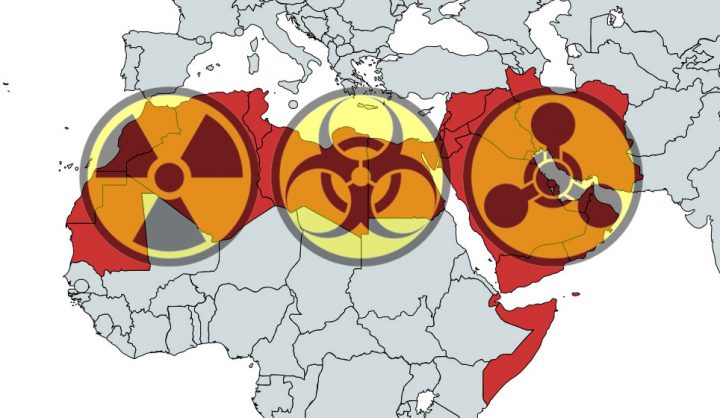A preparatory conference was held this week at the Edinburgh City Chambers in which diplomats, experts, academics and civil society representatives with understanding of the Middle East region considered the elements that would be required in order to start work on getting an agreement between countries in the Middle East to prohibit all weapons of mass destruction. This is crucial in removing the risk of use and threat of nuclear, chemical and biological weapons in a manner that involves all regional states.
Edinburgh’s Deputy Lord Provost Joyce Griffiths opened the conference on Tuesday morning, saying, “The Scottish Enlightenment was initiated under these chambers where key thinkers of the time met to debate and interrogate ideas across all fields of knowledge: demanding evidence to substantiate and rationalise all theories, to instigate knowledge and to ensure benefit for the individual and society as a whole. Is it perhaps time to return to a radical reassessment of accepted norms and reconsider our understanding of the world?”
On Tuesday night, Bill Kidd MSP invited participants to meet Scottish Parliamentarians. He explained, “Scotland is a highly suitable location for a preparatory meeting, one of several round tables which will take place in different countries outside the region. Our Parliament and Government is interested in international peace and security eventhough it cannot have policies or any political agenda on security doctrines in the Middle East.”
Sharon Dolev from the Israeli Disarmament Movement said, “For many years we have heard from states about the impossibility and obstacles and why we cannot reach a WMD Free zone in our lifetime but since the presence of WMDs in this explosive zone might make all of our lifetimes shorter, we have decided as civil society to explore the possibilities and we believe that a zone free of these weapons is not just necessary, but feasible once our governments decide to act.”
Paul Ingram from the British American Security Information Council added, “For too long states have seen WMD as an option for security or to pursue political objectives. Politics and conflict cannot be removed from the region, but states have a responsibility to cooperate more effectively in building confidence and in removing WMD from the equation.
Tony Robinson, from World without Wars and Violence said, “The lack of progress on a WMD Free Zone has been a major disappointment and damaging to the wider non-proliferation regime. An expanding group of people are challenging this pessimism and are involved in this process to draft a model treaty that shows a way forward.”






